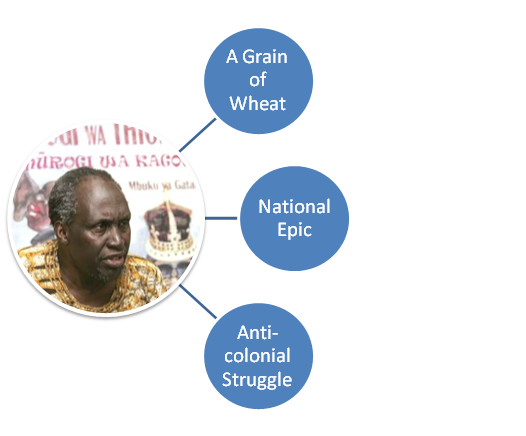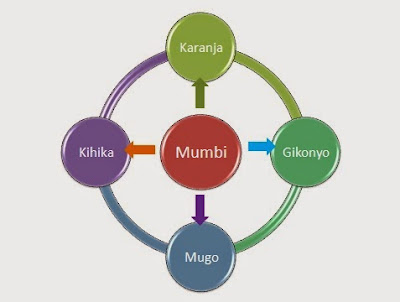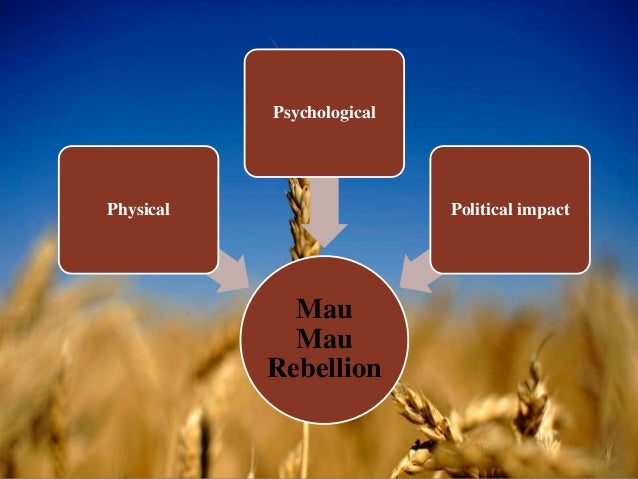To Evaluate my Assignment click here
SUBMITTED TO - S. B. GARDY DEPARTMENT OF ENGLISH
M.K.BHAVNAGAR UNIVERSITY.
Name:- Vala Jyotsna Tanshukhbhai.
Semester: - 4
Roll no: - 33
Enrollment No: - PG15101042
Year: - 2015-17
Paper No: -14 African Literature.
SUBMITTED TO - S. B. GARDY DEPARTMENT OF ENGLISH
M.K.BHAVNAGAR UNIVERSITY.
Name:- Vala Jyotsna Tanshukhbhai.
Semester: - 4
Roll no: - 33
Enrollment No: - PG15101042
Year: - 2015-17
Paper No: -14 African Literature.
Topic: - Critical overview in “A Grain Of Wheat” By Thiongo.
About Writer:-
Ngugi Wa Thiango was born on 5th January 198 in Limuru , enya and was one of the few students from Limuru to attend the lit Alliance High school. Ngũgĩ wa Thiong'o is a Kenyan writer, formerly working in English and now working in Gikuyu. His work includes novels, plays, short stories, and essays, ranging from literary and social criticism to children's literature. He is the founder and editor of the Gikuyu-language journal Mũtĩiri.
He himself said:
“I
am a writer some have even called me a religious writer. I write about
my people. I am interested in their hidden lives and hates and how the
very tension in their hearts affects their daily contact with other men.
How in other words, the emotions stream of the man within interacts
with the real type.”
His works.
Weep not child
Petals of Bloods
The River Between
A Grain of Wheat
About The Novel

A
Grain of Wheat is one of the great novel written by Kenyan writer
namely Ngugi Wa Thiong’o. This novel published in 1967. Story about
events and relationships leading up to a country’s struggle for
independence, or focus on the quite Mugo.
The novel ‘A grin of wheat’ is Ngugi wa Thiongo’s third novel. The novel has Marxist and Fanonian militant attitude.
The action of the novel focuses on the hero’s memory of the incidents of the ‘Mau Mau revolt, the movement began in 1946 Mau Mau rebellion an anti – colonial movement which historians says revolt an independence for the African nation.
The novel stats into a small village and it give us detail about the physical, psychological and political impact of the revolt on small village people. The novel can be summarized as a “Collective act of recalling and reflecting on the past” that is a narration of nation. We can also compare this novel with European and Latin American style especially historical novel is a vehicle to construct a national conscience.
This novel and whole story of it is little bit difficult and different from any other novel or any predecessors’ books but it is reality and it generates real thing in person’s mind. Some common elements like hunger of power, love, betray and etc. also can see in this novel.
The novel ‘A grin of wheat’ is Ngugi wa Thiongo’s third novel. The novel has Marxist and Fanonian militant attitude.
The action of the novel focuses on the hero’s memory of the incidents of the ‘Mau Mau revolt, the movement began in 1946 Mau Mau rebellion an anti – colonial movement which historians says revolt an independence for the African nation.
The novel stats into a small village and it give us detail about the physical, psychological and political impact of the revolt on small village people. The novel can be summarized as a “Collective act of recalling and reflecting on the past” that is a narration of nation. We can also compare this novel with European and Latin American style especially historical novel is a vehicle to construct a national conscience.
This novel and whole story of it is little bit difficult and different from any other novel or any predecessors’ books but it is reality and it generates real thing in person’s mind. Some common elements like hunger of power, love, betray and etc. also can see in this novel.
Plot of the novel ‘A grain of wheat”
‘A grain of wheat’ chronological the events leading up to Kenyan independence, or Uruhu, in a Kenyan village. Gikonyo and Mumbi are newlyweds in love when Gikonyo is sent to detention. When he comes back six years later,Mumbi has carried and given birth to his rival’s child. Instead of talking about their trials, a wall of anger separates them. Mumbi’s brother Kihika , a local hero, is captured and hanged and his comrades search for the betrayer. Mugo becomes a hero through leading a hunger strike in detention, and to town wants him to become a political leader. Mugo, though, struggles with guilt and ultimately confesses that he betrayed Kihika. So the whole novel shows the darker image of the African nation that how people and woman were get tortured by someone and how rivalry takes place into the unwanted relationships. So one let’s see that how the novel A grain of wheat is the national ant colonial struggle as a national epic.
Major characters

Mugo:
He is the main character and the hero of the British Concentration camps, where he led strike. Once he also protects a pregnant woman when one guard was trying to beat her badly. Mugo is a farmer, and he was under her aunt’s care who was a drunken woman and however, Mugo himself feels that he is an outsider. In between we can say that Mugo has different personality and also has respect for women and villagers. His characterization is stronger than Britishers.
Gikonyo:
He is an ambitious carpenter and business man. He was married to Mumbi, but when he comes to his home to Mumbi at that time he became shocked by the news that Mumbi is pregnant. He was in the jail and at that time Mumbi was alone as a caretaker of Gikonyo’s parents. Gikonyo was having a rival or an enemy named as Karanja, who actually took advantage in his absence.
Karanja:
He is young man and a friend of Kihika. Kihika was also in love with Mumbi. When Mumbi marries to Gikonyo he feels that he became alone in the village and there everything has been ended without Mumbi. He mostly focuses on his sorrows and desire for Mumbi. There he takes an oath that with his friends for the movement but he was in favor of Britishers and he joins their governance and becomes one of the guards. Karanja rises as a chief of the area.
Meanwhile
Karanja invites Mumbi to his office once and tells her that her husband
is going to come soon. Because of weakness unfortunately Mumbi allows
sex with Karanja but at a time she regrets and Karanja doesn’t get
fulfillment of his love with Mumbi.
Then
Karanja leaves working at the library in Githima, where he is little
more than toy. The White men don’t have respect for him and black people
hate Karanja. He becomes a man without the world. Mugo saves Karanja
from almost certain death by his confession.
Kihika:
He was Mumbi’s brother and embraces the movement as a young man. He is more religious person and he compares the struggle in Kenya to the Jews in Egypt and wants to be free. He believes in sacrifice and unity. He wants Mugo in the movement and he plans an underground movement in the town. But Mugo becomes the reason of Kihika’s death as he reveals the next plan to the Britishers and Kihika was hanged. Thereby Kihika dies and becomes martyr for the movement. We can say that Mugo is responsible for Kihika’s death and he must be punished somewhere. Wambuku is Kihika’s girlfriend but she is not interested in his patriotism and her friend Njeri falls in love with Kihika. Wambuku marries to another man becomes pregnant but when being beaten by a guard, Mugo tries to save her. Although after a struggle she died.
Mumbi:
Mumbi
is the most beautiful woman in the village of Thabai. She was admired
by many youngsters in the village but she falls in love with Gikonyo and
they got married. She thinks that she will protect her husband when the
officers will come to arrest him, but she does not. Thereby she takes
entire responsibility of Gikinyo’s home and also takes responsibility of
building a new house and working in the trenches while Gikonyo was away
from her in imprisonment.
But
after meeting Karanja her life totally ruined and she goes back to her
parents but also there she suffered and her parents throws her back
because of her mistake. Then even she starts living her life alone and
started working on her own abilities. Thus here the example of this
character is more in light if we do feminist reading of the text.
Waiyaki:
Waiyaki was an early rebellion against the White men, who is rumored to have been buried alive with his head facing into the earth. And it becomes the main
Theme of the text “A Grain of Wheat”
Violence:
When colonization is main part of the novel then it was next to turn into Decolonization. But Decolonization always comes with violence. Decolonization is a violent event. Decolonization is quite simply the substitution of one "species" of mankind by another. The substitution is unconditional, absolute, total, and seamless. Decolonization, which sets out to change the order of the world, is clearly the agenda for total disorder. It is also known as historical movement.
Betrayal:
Individual’s betrayals are representative of the vast betrayal of the whole society by its power elite. Karanja was more powerful and in power position so, Mumbi betrays Gikonyo when he was imprisoned and slept with Karanja and also having child, too. Mugo betrays the whole village with his idea and because of it only some people were caught by British people. He was the person who betrays the entire village, so it is also known as one of main theme of this novel.
Love:
We can find example of love marriage of Gikonyo and Mumbi in this novel and even if we think in platonic way then we can realizes that every person of this novel is in love with Uhuru, self-freedom and nativism. They want to fight for their native land and want to see their self-free from British Colonization, so Love is also noticeable theme of ‘A Grain of Wheat’.
Patriotism:
There is no doubt that it is one of most important themes of this novel ‘A Grain ofWheat’. This novel is starts with only ‘Mau Mau Movement’ sso it is very well known patriotic movement for self-right and native country and land so it leads us towards patriotic atmosphere and intention.
Sacrifice:
“A Grain of Wheat” can be called ‘impossible irony’ of nationalism in the words of Terry Eagleton.
The theme of heroism and sacrifice crosses the whole work; this is not surprising, for as Ernest Renan explained in 1882, “le capital social sur lequel on assied une idée nationale” is made up most of all of “un passé heroique, des grands homes, de la gloire”. In Grain of Wheat the heroic character
par excellence is the late Kihika, the courageous guerilla leader full of messianic spirit.”
A Grain of Wheat as a National epic of Anti-colonial struggle:-
Mau Mau Rebellion

The Mau Mau Uprising, also known as the Mau Mau Revolt, Mau Mau Rebellion, or Kenya Emergency, was a military conflict that took place in British Kenya between 1952 and 1960.
It involved Kikuyu dominated groups summarily called Mau Mau, the white settlers including women and children and elements of the British Army. The novel can be summarized as a ‘collective act of recalling and reflecting on the past’ that is a narration of nation.
Uhuru : Freedom
The whole novel can indeed be summarized as a collective act of recalling and reflecting on the events leading to Uhuru, in order to understand what actual meaning it should have for Thabai peasants. That would be held on Kenya’s Independence Day.
Kihika, a Mau Mau rebel who sacrificed his life to fight for Kenya’s freedom during the Mau Mau rebellion. People tries to struggle for their own Uharu and it is the main and central idea of Novel .
Anti-Colonial Struggle
The action of novel focuses on the protagonists’ remembrances of the events of the ‘Mau Mau ’ Revolt- the birth of a new Kenya. The author choose Christianity as a knife to tear apart the society.
“They looked beyond the laughing face of the Whiteman and suddenly saw a long line of other red stranger who carried, not the Bible, but the sword.”
To Evaluate my Assignment click here.
Thank you for sharing this wonderful blog with us.This is really helpful and informative blog.keep sharing these kinds of blogs.
ReplyDeleteWheat Expoters